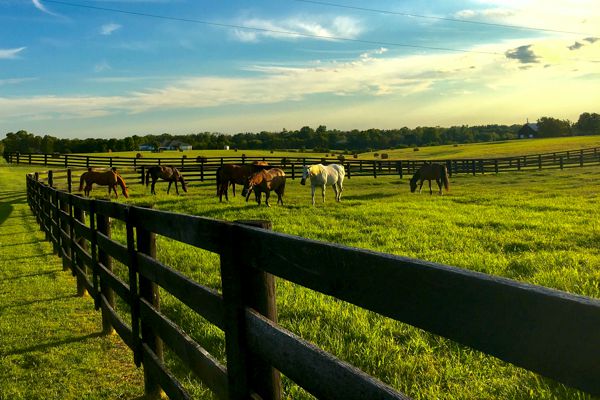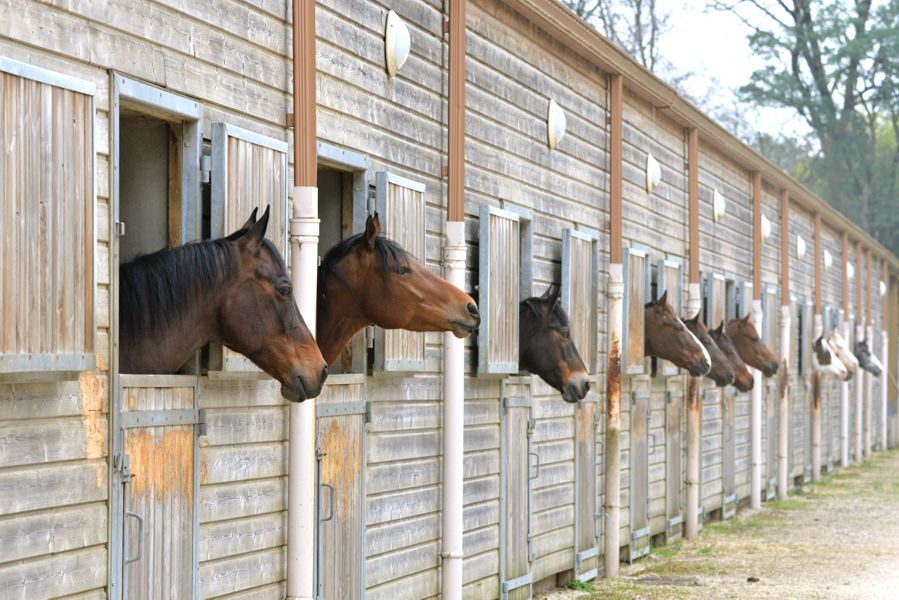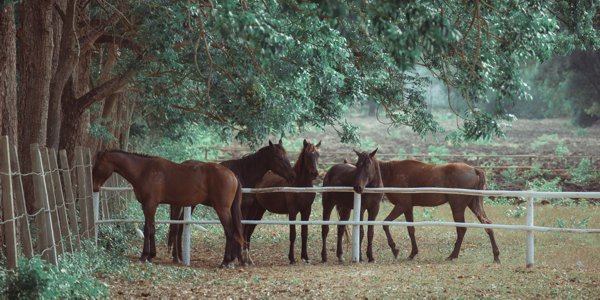
Provide Your Horse with Nutritional Diversity
Variety is essential! Horses roaming free eat a variety of native grasses and herbs and plants every day. Horses in a cultivated pasture can eat only what is provided because they have no other choice.
In addition, we often seed our pastures with modern grasses which are higher in simple sugars. Beautiful pasture grass is good if we are going for aesthetics- but not necessarily good to maintain your horses health.
In England there has been a traditional belief among horse breeders that a good pasture should contain 80 or more different plant species. A pasture with less than 40 species was considered to be depleted or in decline. In the U.S., horse owners would be hard-pressed to find a pasture, paddock, or bale of hay with even a dozen species, let alone 40 to 80.
Whole Pastures provides an additional 28 species of nutritional herbs and plants to your horses diet.

The problem about your horse's health is even more prominent when your horse is stabled, even if the horse has a run. If they are limited to being fed with hay and grain, the feed will still be lacking the variety of nutrients needed to produce the optimal health.
The horses at risk for developing nutrient deficiencies include high-level performance horses, pregnant and lactating mares, growing horses up to 2 years of age, and horses that are stalled 24/7 on an all-hay diet with no pasture access.
Also at risk are horses living in a state deficient in certain nutrients. A lot of minerals vary depending on location, soil content, and the species of herbs and plants growing. Drought conditions can affect minerals, too. But we do know that areas with soil deficient in selenium (for example) include the Midwest, East Coast, and some parts of the West Coast. Selenium supports horses' immune function, so a lack of it can impede a horse's ability to fight off infection.

Horse Nutritional Deficiencies
Nutritional deficiencies in horses take on many forms and signs of deficiencies are often nonspecific. Diagnosis is often complicated by disease and deficiencies of several nutrients simultaneously. Unfortunately thorough studies of equine nutritional deficiencies are lacking in many areas.
When a horse is not provided the required nutrients, the result may be disease, poor exercise capability, susceptibility to parasites and bacterial infections, dental problems, and development of metabolic stereotypies.
Although some horses appear to be in good health, and, in fact, may be overweight, nutritional deficiencies may lead to health problems. Although overfeeding is often a contributing factor when horses put on too much fat, nutritional deficiencies may play a part in the regulation of the horse's appetite.
Loss of weight or failure to thrive indicate nutritional deficiencies related either to caloric intake or the body's poor utilization of the feed and are marked by a decrease in fatty tissue and muscle of the horse.
In foals or young horses, growth of the skeleton may slow or stop. In adult horses, osteoporosis may affect the bone structure. If the horse reaches a point of actual starvation, the internal organs are affected, as well as the immune system, reproduction, and energy efficiency.
Horses fed a diet of poor-quality hay are subject to protein, mineral, and vitamin deficiencies, metabolic disorders, parasites, and bacterial and viral infections, in addition to lack of exercise capability and the general well-being that affects a horse's interaction with owners/handlers and other horses.
Some horses have metabolic problems, diseases, or intestinal disorders that keep them from getting adequate nutrition from their diet. One of these conditions, Dysbiosis, is also known as "Leaky Gut Syndrome." The gastrointestinal tract becomes eroded and ulcerated, impairing nutrient absorption, which, if undetected, can lead to severe malnutrition, as well as bacterial and viral infections and diseases. .
Symptoms of Deficiencies
- Chronic weight loss
- Chronic diarrhea
- Scruffy coat
- Susceptibility to disease and infection
- Indications of tight or sore muscles
- Lack of exercise or work capability
- Orthopedic problems
- Parasites
- Colic
- Dental problems

